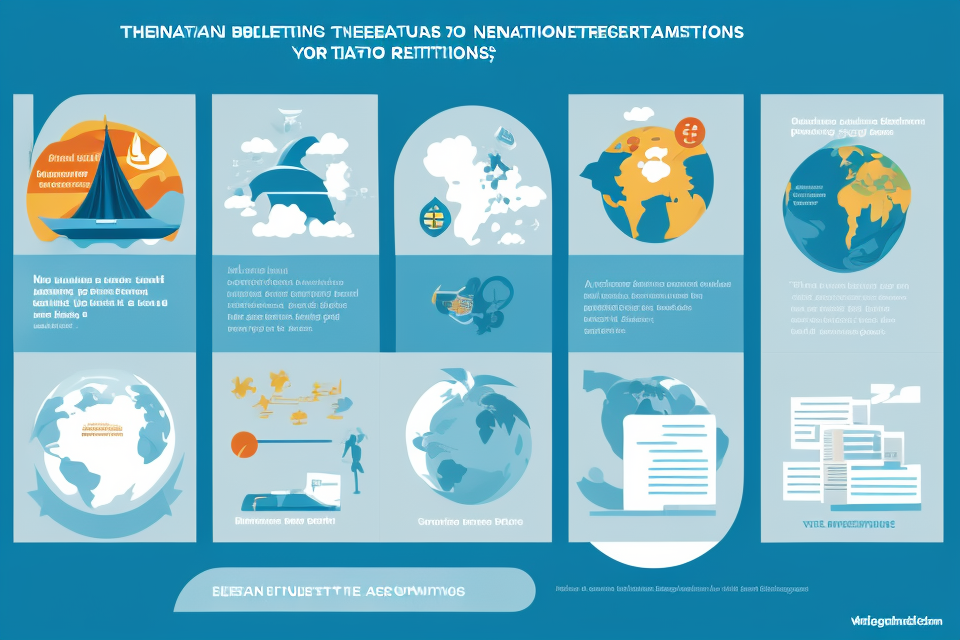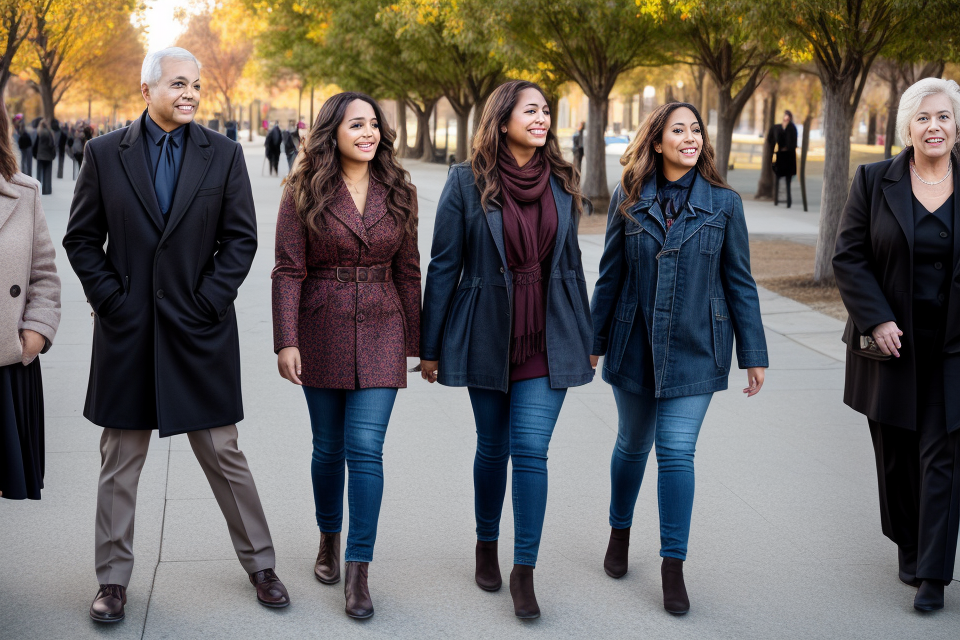Cultural beliefs and values are the fundamental principles that guide the behavior and interactions of individuals within a particular society or group. These beliefs and values are shaped by a variety of factors, including history, religion, tradition, and social norms. They can range from shared attitudes towards gender roles, to beliefs about the importance of education, to the significance of family and community. Understanding cultural beliefs and values is essential for effective communication, conflict resolution, and cross-cultural collaboration. In this comprehensive guide, we will explore the complexities of cultural beliefs and values, and provide practical strategies for navigating diverse cultural contexts. Whether you are a student, a professional, or simply curious about the world around you, this guide will help you gain a deeper appreciation for the rich diversity of human culture.
What are Cultural Beliefs and Values?
Definition and Importance
Definition of Cultural Beliefs and Values
Cultural beliefs and values refer to the shared attitudes, behaviors, and practices that are characteristic of a particular culture or society. These beliefs and values are transmitted from one generation to another through various means, such as language, customs, traditions, and socialization processes. They shape the way individuals perceive and interact with the world around them, and they play a crucial role in shaping the social, political, and economic structures of society.
The Role of Cultural Beliefs and Values in Society
Cultural beliefs and values are the foundation of social order and stability. They provide individuals with a sense of identity and belonging, and they help to define the norms and expectations that govern social behavior. They also serve as a means of transmitting cultural knowledge and traditions from one generation to another, preserving the cultural heritage of a society. In addition, cultural beliefs and values can influence the development of social institutions, such as the family, education, and religion, and they can shape the way that society interacts with other societies.
How Cultural Beliefs and Values Shape Individual Behavior
Cultural beliefs and values shape individual behavior by providing a framework for understanding the world and guiding social interaction. They influence the way that individuals perceive themselves and others, and they can affect attitudes and behaviors related to a wide range of issues, such as gender roles, sexuality, religion, and politics. Cultural beliefs and values can also play a role in shaping individual aspirations and goals, and they can influence the choices that individuals make in their personal and professional lives. By understanding the role of cultural beliefs and values in shaping individual behavior, it is possible to gain a deeper understanding of the complex interplay between culture and individual identity.
Cultural Beliefs
Types of Cultural Beliefs
Religious Beliefs
Religious beliefs refer to the set of convictions, practices, and rituals that are associated with a particular religion or faith. These beliefs often center around the existence and nature of a higher power or powers, and the role that these entities play in the lives of individuals and society as a whole. Examples of religious beliefs include the belief in a single deity, multiple deities, or even non-theistic beliefs such as Buddhism.
Philosophical Beliefs
Philosophical beliefs encompass a wide range of ideas related to the nature of reality, knowledge, ethics, and human existence. These beliefs are often based on logical reasoning and critical thinking, and can be influenced by various philosophical schools of thought such as Platonism, Aristotelianism, and existentialism. Philosophical beliefs can shape the way individuals view the world and their place in it, and can have a significant impact on cultural values and practices.
Political Beliefs
Political beliefs refer to the set of convictions and values that individuals hold regarding the organization and governance of society. These beliefs can encompass a wide range of issues, including government structure, economic policies, social welfare, and individual rights and freedoms. Political beliefs can be influenced by a variety of factors, including personal experiences, social and economic conditions, and cultural norms and values.
Scientific Beliefs
Scientific beliefs refer to the set of convictions and theories that are based on empirical evidence and the scientific method. These beliefs are subject to change based on new evidence and research, and are often tested and verified through experimentation and observation. Examples of scientific beliefs include the theory of evolution, the Big Bang theory, and the laws of thermodynamics.
Overall, cultural beliefs are an important aspect of human society, shaping the way individuals perceive and interact with the world around them. By understanding the different types of cultural beliefs, we can gain a deeper appreciation for the diversity and complexity of human culture.
Examples of Cultural Beliefs
Religious beliefs are a significant aspect of cultural beliefs, as they shape the values and practices of many societies. These beliefs are often passed down through generations and can vary greatly from one culture to another. Examples of religious beliefs include:
- Monotheistic beliefs such as Christianity, Islam, and Judaism, which posit the existence of a single, all-powerful deity.
- Polytheistic beliefs such as Hinduism, which recognizes multiple gods and goddesses.
- Animistic beliefs, which attribute spiritual powers to natural objects such as trees, rivers, and animals.
- Spiritual beliefs, which emphasize a connection to the spiritual realm without adhering to a specific religion.
Philosophical beliefs are a set of ideas and principles that shape how individuals perceive the world and their place in it. These beliefs can vary greatly between cultures and can include:
- Ethical beliefs, which define what is right and wrong.
- Political beliefs, which shape how societies are governed.
- Scientific beliefs, which influence how individuals understand the natural world.
- Metaphysical beliefs, which address questions about the nature of reality and existence.
Political beliefs shape how societies are governed and can vary greatly between cultures. These beliefs can include:
- Ideologies such as socialism, capitalism, and communism, which define how resources are distributed and how the economy is managed.
- Systems of government such as democracy, monarchy, and dictatorship, which determine how power is held and exercised.
- Legal systems, which define how individuals are held accountable for their actions.
- Nationalistic beliefs, which promote pride in one’s culture and country.
Scientific beliefs shape how individuals understand the natural world and can vary greatly between cultures. These beliefs can include:
- Theories about the origins of the universe, such as the Big Bang theory.
- Theories about the structure of the natural world, such as the theory of evolution.
- Theories about the behavior of the human body, such as the theory of germs and disease.
- Technological advancements, which can shape how individuals interact with the world around them.
In conclusion, cultural beliefs are a complex and varied aspect of human society, shaping how individuals perceive the world and their place in it. By understanding these beliefs, we can gain a deeper understanding of the diverse cultures that make up our global community.
Cultural Values
Types of Cultural Values
Cultural values can be broadly categorized into four types, each of which represents a distinct aspect of human beliefs and behaviors. These types of cultural values include:
- Material values: These values are associated with tangible assets, such as wealth, property, and possessions. They represent the material aspects of life and are often linked to status, power, and prestige. Material values can be measured in terms of their monetary worth and are often seen as essential for human survival and well-being.
- Non-material values: These values are not directly related to tangible assets, but rather to intangible aspects of life, such as love, compassion, and spirituality. Non-material values are often associated with personal growth, self-fulfillment, and a sense of purpose. They are not easily quantifiable and may vary widely across different cultures and societies.
- Collective values: These values are shared by a group or community and are often based on a sense of belonging and identity. Collective values can be linked to shared beliefs, customs, and traditions, and may be reinforced through social norms and expectations. Examples of collective values include respect for authority, obedience, and loyalty.
- Individual values: These values are personal to each individual and reflect their unique beliefs and attitudes. Individual values may be influenced by a variety of factors, including upbringing, education, and personal experiences. They can be highly subjective and may vary widely from one person to another.
Each of these types of cultural values can play a significant role in shaping an individual’s worldview and behavior. Understanding the different types of cultural values can help us to better appreciate the diversity of human beliefs and behaviors and to navigate the complex cultural landscape that surrounds us.
Examples of Cultural Values
Cultural values refer to the beliefs and principles that a society or group holds as important or desirable. These values shape the way people think, behave, and interact with one another. There are several types of cultural values, including material values, non-material values, collective values, and individual values.
Examples of Material Values
Material values are those that are tangible and can be measured in terms of wealth, power, or status. Some examples of material values include:
- Money
- Land
- Houses
- Cars
- Clothing
- Jewelry
- Technology
Examples of Non-Material Values
Non-material values are those that are intangible and cannot be measured in terms of wealth, power, or status. Some examples of non-material values include:
- Religion
- Education
- Health
- Freedom
- Equality
- Respect
- Trust
Examples of Collective Values
Collective values are those that are shared by a group or society as a whole. Some examples of collective values include:
- Patriotism
- Nationalism
- Social justice
- Environmentalism
- Community
- Harmony
Examples of Individual Values
Individual values are those that are unique to each person and may differ from those of others in the same society or group. Some examples of individual values include:
- Personal happiness
- Self-esteem
- Creativity
- Independence
- Curiosity
- Self-reliance
Understanding cultural values is essential for effective communication and collaboration across cultures. It can help us to appreciate the differences and similarities between cultures and to avoid misunderstandings and conflicts.
Cultural Diversity
Importance of Cultural Diversity
Understanding different cultures is the first step towards embracing cultural diversity. Every culture has its own unique beliefs, values, customs, and traditions that have been passed down from generation to generation. By learning about different cultures, we can gain a better understanding of the world around us and appreciate the richness and diversity of human experience.
Promoting cross-cultural understanding and respect is also essential for fostering a more inclusive and tolerant society. When we understand and respect other cultures, we are less likely to stereotype or discriminate against people who are different from us. This can help to break down barriers and create a more harmonious and welcoming environment for everyone.
Encouraging cultural exchange and dialogue is another important aspect of promoting cultural diversity. By engaging in meaningful conversations with people from different cultures, we can learn from each other and build stronger relationships. This can help to bridge cultural divides and create a more connected and inclusive world.
In conclusion, understanding and appreciating cultural diversity is essential for building a more inclusive and tolerant society. By learning about different cultures, promoting cross-cultural understanding and respect, and encouraging cultural exchange and dialogue, we can create a more harmonious and welcoming environment for everyone.
Challenges of Cultural Diversity
Cultural diversity is a term used to describe the variety of different cultures, beliefs, and values that exist within a society. While cultural diversity can bring many benefits, it can also present challenges that need to be addressed. In this section, we will explore some of the key challenges associated with cultural diversity.
Stereotyping and Prejudice
Stereotyping and prejudice are common challenges associated with cultural diversity. Stereotypes are generalizations about a particular group of people, based on their cultural background. These stereotypes can be positive or negative, but they often lead to negative consequences. Prejudice is a preconceived opinion that is not based on reason or experience. Both stereotyping and prejudice can lead to discrimination and marginalization of certain groups of people.
Discrimination and Marginalization
Discrimination is the unfair treatment of a person or group based on their cultural background. This can include things like unequal access to education, employment, or healthcare. Marginalization is the process of making a group of people feel excluded or powerless. Both discrimination and marginalization can have serious consequences for individuals and communities.
Clashes between Cultural Values and Beliefs
Cultural values and beliefs can clash when different groups come into contact with each other. These clashes can be caused by differences in language, religion, customs, or traditions. When these clashes occur, it can be difficult to find common ground and build understanding between different groups.
Overall, the challenges associated with cultural diversity can be complex and difficult to navigate. However, by understanding these challenges and working to address them, we can build more inclusive and equitable societies that value and respect the diversity of all individuals.
Impact of Globalization on Cultural Beliefs and Values
Effects of Globalization on Cultural Beliefs and Values
Globalization has brought about significant changes in the way people perceive and practice their cultural beliefs and values. This section will delve into the effects of globalization on cultural beliefs and values, examining how globalization has impacted the spread, adoption, and evolution of cultural beliefs and values.
Spread of Cultural Beliefs and Values across Borders
One of the most apparent effects of globalization on cultural beliefs and values is the increased mobility of people across borders. With the rise of international travel, migration, and communication, people are exposed to different cultural beliefs and values from various parts of the world. This exposure has led to the spread of cultural beliefs and values across borders, as people share and adopt new ideas and practices from different cultures.
Influence of Global Media and Communication on Cultural Beliefs and Values
Another effect of globalization on cultural beliefs and values is the influence of global media and communication. With the widespread availability of the internet, social media, and international news outlets, people are able to access information about different cultures and their beliefs and values from around the world. This access has created a global conversation about cultural beliefs and values, and has allowed people to compare and contrast their own beliefs and values with those of others.
Encountering Different Cultural Beliefs and Values in a Globalized World
As people encounter different cultural beliefs and values in a globalized world, they may experience a range of emotions and reactions. Some may feel challenged or threatened by the differences they encounter, while others may feel inspired or curious to learn more. In some cases, people may feel a sense of disorientation or loss of identity as they navigate the complex landscape of cultural beliefs and values.
In conclusion, globalization has had a profound impact on cultural beliefs and values, affecting the spread, adoption, and evolution of these beliefs and values across borders. As people continue to interact and communicate with each other on a global scale, it is important to understand and appreciate the diversity of cultural beliefs and values that exist in the world.
Adapting to Cultural Differences in a Globalized World
- As the world becomes increasingly interconnected, it is important for individuals and organizations to adapt to cultural differences in order to effectively communicate and collaborate with others from diverse backgrounds.
- Adapting to cultural differences requires a willingness to learn and understand the beliefs, values, and practices of other cultures, as well as an open-mindedness to new perspectives and ways of thinking.
- Strategies for adapting to cultural differences may include developing cultural intelligence, seeking out cross-cultural training, and engaging in cross-cultural communication and collaboration.
- Being culturally competent can bring a range of benefits, including improved communication, increased empathy and understanding, and enhanced problem-solving abilities.
- Cultural awareness and sensitivity are essential for navigating cultural differences in a globalized world, and can help individuals and organizations avoid offense and misunderstandings.
Overall, adapting to cultural differences in a globalized world requires a commitment to learning and growth, as well as a willingness to challenge one’s own assumptions and biases. By developing cultural competence and cultural awareness, individuals and organizations can build stronger relationships, enhance their ability to work effectively across cultures, and contribute to a more harmonious and inclusive global community.
FAQs
1. What are cultural beliefs and values?
Cultural beliefs and values refer to the ideas, customs, and practices that are shared by a group of people and are transmitted from one generation to another. These beliefs and values shape the way people think, act, and interact with one another in their social, economic, and political contexts.
2. How do cultural beliefs and values differ from one another?
Cultural beliefs and values can differ greatly from one another depending on the specific group of people and their geographical, historical, and social contexts. For example, some cultures may place a high value on individualism and personal freedom, while others may prioritize collectivism and group harmony. Similarly, some cultural beliefs may be based on religious or spiritual traditions, while others may be rooted in scientific or rational thought.
3. How are cultural beliefs and values transmitted from one generation to another?
Cultural beliefs and values are typically transmitted through a variety of channels, including family, education, media, and religion. For example, parents may pass on their cultural beliefs and values to their children through storytelling, family traditions, and everyday interactions. Education systems may also play a role in shaping cultural beliefs and values, as students learn about their cultural heritage and the beliefs and values of others.
4. How do cultural beliefs and values influence behavior?
Cultural beliefs and values can have a powerful influence on behavior, as they shape people’s attitudes, motivations, and goals. For example, a culture that places a high value on individualism may encourage people to pursue their own goals and interests, while a culture that prioritizes collectivism may encourage people to prioritize the needs of the group over their own. Cultural beliefs and values can also influence social norms and expectations, such as how people should dress, behave, or interact with one another.
5. Can cultural beliefs and values change over time?
Yes, cultural beliefs and values can change over time due to a variety of factors, including social and economic changes, technological advancements, and cultural exchange. For example, as societies become more globalized, people may be exposed to new ideas and beliefs that challenge their existing cultural norms and values. Additionally, cultural beliefs and values may evolve over time as people adapt to new social and economic realities.



